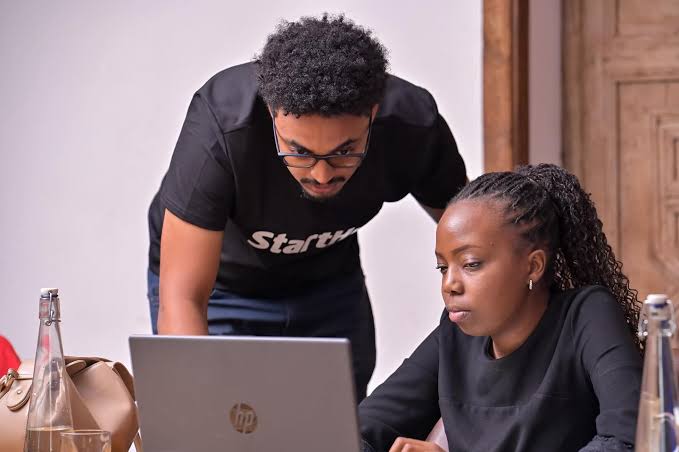For every successful startup, there’s usually a story of strong partnerships behind it. Understanding how to choose the right co-founder for your startup is one of the most critical decisions you’ll ever make as an entrepreneur.
The wrong partnership can derail even the most promising idea, while the right one can propel your venture to scale faster, attract investors, and build a resilient company culture.
This guide unpacks what makes co-founder relationships work, how to identify red flags early, and practical frameworks for evaluating fit, not just emotionally, but strategically.
Why Co-Founder Fit Matters
Your co-founder is not just a business partner; they are the person you’ll share late nights, setbacks, and breakthroughs with. In many ways, it’s similar to a marriage, one built on trust, communication, and shared vision.
A good co-founder fit ensures that both parties share not only complementary skills but also aligned ambitions and values about how to build, scale, and sustain the business.
How to Choose the Right Co-Founder for Your Startup
1. Align on Vision, Mission, and Values
Before discussing titles or shares, ensure both founders agree on why the company exists. Misaligned motivations often destroy startups faster than funding gaps.
Ask these questions early:
- Do we share the same long-term goals for the company?
- Are we building for growth, impact, or acquisition?
- How do we define success, in five or ten years?
Startups are marathons, not sprints. Shared values; honesty, work ethic, accountability, and respect will guide you through hard pivots, investor rejections, and tough calls.
2. Look for Complementary Skills, Not Clones
Founders often make the mistake of partnering with someone just like them, same background, same mindset, same skillset. But the most effective teams are diverse in ability and thought.
Here’s what to look for instead:
- Skill diversity: One technical, one strategic; one visionary, one executor.
- Experience gap: Different strengths in product, marketing, or finance.
- Personality balance: A calm partner can offset a high-energy risk-taker.
Remember: You need a co-founder who fills your gaps, not mirrors your strengths.
3. Test the Partnership Before You Formalise It
Think of it as “dating before marriage.” Work together on a small project or prototype before signing incorporation papers.
This trial period helps you assess:
- How you both handle stress and deadlines.
- Whether communication flows naturally.
- How you resolve disagreements and make decisions.
Many founders recommend a 3–6 month trial phase to gauge compatibility before formal commitments. If things go well, you’ll know the relationship has depth beyond enthusiasm.
4. Define Roles, Expectations, and Decision-Making Early
Ambiguity breeds conflict. Even the most aligned founders can clash without clear structure. Early on, agree on:
- Roles: Who handles what — operations, tech, marketing, or finance.
- Decision-making: How major decisions will be made (unanimous or majority).
- Conflict resolution: When disagreements occur, what’s the process?
Put it in writing — ideally in a Founders’ Agreement drafted by a lawyer. Formal documents may seem unnecessary early on, but they protect your relationship when success (or failure) tests it later.
5. Get Equity Right
Equity discussions can strain even close friendships. Don’t rely on verbal agreements or emotions; treat it as a business negotiation.
Here’s a smart approach:
- Base equity on contribution, not just the idea.
- Include vesting schedules (typically four years, with a one-year cliff).
- Document all agreements legally to prevent disputes down the line.
Fair equity ensures everyone stays committed long-term, not just during the “honeymoon” phase of your startup.
6. Prioritise Emotional Intelligence and Communication
Startups are emotional rollercoasters. The ability to stay calm, empathetic, and honest under pressure is what keeps teams united.
Look for a co-founder who:
- Listens more than they talk.
- Accepts feedback without defensiveness.
- Can disagree without being disagreeable.
7. Watch for Red Flags Early
Not everyone is cut out to be a co-founder, and that’s okay. Recognising warning signs early can save you time, energy, and heartache.
Be cautious if you notice:
- A reluctance to discuss money or legal structure.
- Ego-driven decision-making (“my idea, my rules”).
- Inconsistent follow-through or accountability.
- Focus on quick fame or funding rather than long-term impact.
If something feels off, don’t ignore it. Founding a startup is too demanding to carry unresolved tension from day one.
FAQs on How to Choose the Right Co-Founder for Your Startup
What’s the most important quality in a co-founder?
Trustworthiness and alignment on vision. Skills can be developed, but shared purpose and integrity are non-negotiable.
Should I start a company with my friend?
Only if you’ve tested working together professionally. Friendship doesn’t always translate into business compatibility.
How should equity be divided between co-founders?
Equity should reflect contribution, risk, and time commitment — not just the idea originator. Legal agreements are essential.
What happens if co-founders fall out?
A clear founders’ agreement and vesting schedule protect both parties and ensure continuity even if one founder exits.
Can a solo founder succeed?
Yes. With strong advisors, capable hires, and a clear vision, solo founders can still build scalable, sustainable startups.
—————————-
Bookmark Techparley.com for the most insightful technology news from the African continent.
Follow us on Twitter @Techparleynews, on Facebook at Techparley Africa, on LinkedIn at Techparley Africa, or on Instagram at Techparleynews.






